Carl E. Olson's Blog, page 278
October 8, 2011
"We are continually in need of our own extreme spiritual makeover"
Teresa Tomeo, author of Extreme Makeover: Women Transformed by Christ, Not Conformed to the Culture, on the need for a true and lasting "makeover":
Turn on the TV any given night and you're bound to find some program that deals with some sort of makeover. ...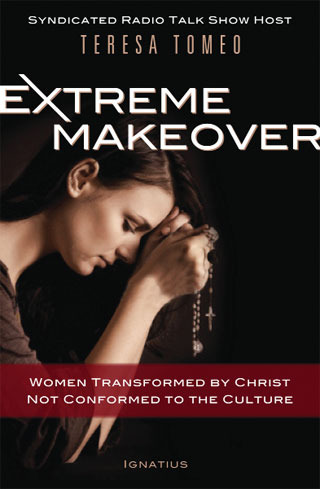
What we really need is Extreme Makeover: Catholic Edition. After all, given the long list of social ills that seems to keep getting worse, thanks to the very toxic and slippery slope we've been on, who couldn't use a spiritual makeover?
That said, don't hold your breath. It's highly doubtful that one of the major broadcast networks or cable channels would spend the time, money and effort to develop a program that deals with issues that go well beyond the surface.
First of all, it's not "sexy" enough or bizarre enough for prime time. Secondly, and even more importantly, in my humble opinion, as someone who came back into the Church kicking and screaming along the way, real self-examination, real change is very hard work.
It's painful to take a good, long look at your life. In today's instant-gratification-and-all-about-me culture, not too many of us want to go deeper. Instead, we often opt for the quick fix. It's very challenging, after all, to admit your mistakes and humble yourself before God and ask forgiveness. Your first inclination is to stay right where you're at and maybe just do a few minor "makeovers" that you hope will get you far enough in the Lord's eyes to land that ticket into heaven. Again, I am speaking from personal experience.
The old saying "The devil you know is better than the devil you don't know" is very true when it comes to the idea of total abandonment to God, and especially within the Catholic Church.
Read the entire essay, "What Society Needs Is an Extreme Makeover, Catholic Style", on the National Catholic Register site. Read more about Teresa and her work on the book's website.
And here is a video interview with Teresa in which she talks in detail about her book and the challenge of being Catholic in a culture that is often directly opposed to truth, goodness, and the gospel:
35,000 expected at the 2012 Walk for Life West Coast in San Francisco
From the California Catholic Daily:
The 8th Annual Walk for Life West Coast, the second-largest pro-life gathering in the United States, will be held in San Francisco's Civic Center Plaza on January 21, 2012.
Due to a scheduling conflict, the Walk will be unable to follow its familiar route from Justin Herman Plaza and along San Francisco's waterfront, but the new location and route are greeted as opportunities by organizers.
"Starting at the Civic Center Plaza, right across from City Hall, puts us right in the heart of our City," said co-founder Dolores Meehan.
"Market Street has always been San Francisco's major thoroughfare," added co-founder Eva Muntean. "We welcome the chance to share our message there."
Read the entire piece; also visit the Walk for Life West Coast site.
Eva is the Marketing Manager for Ignatius Press. This coming week I'll be posting the amazing story of how she and her famly escaped from Communist Hungary in the 1960s, and she came to work for Ignatius Press in 1993.
Called to a Feast of Everlasting Joy
A Scriptural Reflection on the Readings for Sunday, October 9, 2011 | Carl E. Olson
Readings:
• Is 25:6-10a
• Ps 23:1-3a, 3b-4, 5, 6
• Phil 4:12-14, 19-20
• Mt 22:1-14
When I was growing up, I often thought that being a Christian was boring, dull, and mostly about limiting what I could do. I was never an overtly rebellious kid and I would often defend my beliefs, on one hand, while privately lamenting, on the other, that they kept me from listening to certain music, reading various books, or hanging out with this or that person.
Oddly enough, some of the recent bestselling books attacking Christianity, many of them written by atheists, reflect a related perspective. Christianity is not only outdated and stuffy, we are told, but is fueled by hatred, anger, and the need to condemn those who aren't Christian. Granted, there are some Christians who fit into that alarming mold. But, then, there are quite a few atheists, agnostics, and other non-Christians who do as well. The problem, it is obvious to me, isn't Christianity, but the human condition.
Being fallen creatures possessing free will, we often choose fear and anger over love and peace. But while Scripture is clear that eternal judgment is very real, it also emphasizes two facts: first, we are ones who bring judgment upon ourselves, and, secondly, that judgment is not the action of vengeful God, but a just and merciful God. The story of salvation history is not of a distant despot eager to destroy His creatures, but of a loving Creator seeking to bring us back.
Back to what? According to the prophet Isaiah, back to "a feast of rich food and choice wines." In writing this, he drew upon the rich history of festivals among the Jewish people. The Mosaic covenant commanded six feasts and one fast, celebrated annually. These commemorated key events in the history of the people, especially the Exodus from Egypt and the forty years spent in the desert afterwards.
For Isaiah, Jeremiah, and other prophets, these feasts were reminders of God's love and covenantal faithfulness, as well as signs of a future feast celebrating the end of death, the destruction of evil, and communion with God. Dull? No. Boring? Hardly. Depressing? Not at all! As King David expressed so poignantly in Psalm 23, the desire of God, our Shepherd, is to give us repose, refreshment, protection, nourishment, and everlasting joy.
But if we are given the gift of free will, we are also given a clear choice. Atheists may rail against the judgment of God and the doctrine of hell, but those realities reveal the rather astounding nature of God's respect for us. Love cannot be forced; real relationships cannot be coerced. Love and communion with God are gifts that must be freely accepted.
Thus, the king in the parable heard in today's Gospel summons the invited guests to the wedding feast. Did they have to attend? No. But if they chose to skip the wedding feast, they also chose to miss out on joy and life and goodness. The marriage, explained St. Gregory the Great, is that of Christ and His Bride, the Church. The wedding garment required for entrance is charity: "a person who goes into the feast without a wedding garment is someone who believes in the Church but does not have charity."
We can do the right things and utter the proper words, yet be devoid of love. But if we are without love, how can we have communion with God, Who is love (cf., 1 John 4:8)? Yes, our actions are very important, but the reasons for our actions are equally important.
Jesus' parable, like others in the Gospel of Matthew, was a warning to the Jewish priests and elders. But it also serves as a warning to us. If we sometimes think that being a Catholic is dull and boring, is the problem with God's gift or with our understanding of it? When we attend the wedding feast and receive the Eucharist (cf, CCC 1617), are we humbled by God's love? Filled with joy? Aware of our failings? "My God," Paul reminds us, "will fully supply whatever we need."
(This "Opening the Word" column originally appeared in the October 12, 2008, edition of Our Sunday Visitor newspaper.)
October 7, 2011
Chesterton on devotion to the Blessed Virgin Mary
I do not want to be in a religion in which I am allowed to have a crucifix. I feel the same about the much more controversial question of the honour paid to the Blessed Virgin. If people do not like that cult, they are quite right not to be Catholics. But in people who are Catholics, or call themselves Catholics, I want the idea not only liked but loved and loved ardently, and above all proudly proclaimed. I want it to be what the Protestants are perfectly right in calling it; the badge and sign of a Papist. I want to be allowed to be enthusiastic about the existence of the enthusiasm; not to have my chief enthusiasm coldly tolerated as an eccentricity of myself. And that is why, with all the good will in the world, I cannot feel the crucifix at one end of the town as a substitute for the little Roman Catholic Church at the other.
— From the Autobiography of G.K. Chesterton
The honour given to Mary as the Mother of God is, among a thousand other things, a very perfect example of the truth to which I have recurred more than once: that even what we may call the Protestant truths were only saved by the Catholic authority. Among these is the very necessary truth of the subordination of Mary to Christ, as being after all the subordination of the creature to the Creator. Nothing amuses Catholics more than the suggestion, in so much of the old Protestant propaganda, that they are to be freed from the superstition called Mariolatry, like people freed from the burden of daylight. All the spontaneous spirituality, as distinct from the necessary doctrinal orthodoxy, is on the side of the extension and even excess of this cult. If Catholics had been left to their private judgment, to their personal religious experience, to their sense of the essential spirit of Christ and Christianity, to any of the liberal or latitudinarian tests of truth, they would long ago have exalted our Lady to a height of superhuman supremacy and splendour that might really have imperilled the pure monotheism in the core of the creed. Over whole tracts of popular opinion she might have been a goddess more universal than Isis. It is the authority of Rome that has prevented such Catholics from indulging in such Mariolatry; the strict definition that distinguished between a perfect woman and a divine Man.
— From The Catholic Church and Conversion, by G.K. Chesterton
Also see, on Ignatius Insight:
"And I found out the Church was, and is, right."
Teresa Tomeo, radio host and author of the just released book, Extreme Makeover: Women Transformed by Christ, Not Conformed to the Culture, talks with ZENIT about her struggles with faith and the challenges of being a woman in a culture filled with false freedoms and attractive lies:
ZENIT: In your book, you described yourself as a liberal feminist who had fallen away from the Church…what made you want to come back?
Tomeo: I fell away gradually and came back gradually. As I discuss in "Extreme Makeover," the Lord had and still has a lot of work to do with me. I was on the fast track with my career for many years and, at one point, my professional goals and personal desires for success and money took over to the point where those desires almost cost me my marriage but, more importantly, my soul. It was a crisis in my marriage and a job loss that finally forced me to look at my life and revisit the Church in which I was raised. Maybe there really was something to the Sacraments and the teachings after all? And I found out the Church was, and is, right.
ZENIT: Secular society seems to hold the view that the Church is unfair to women and suppresses our freedoms; but you show that the Church offers women true freedom and equality among men. Can you expand on this for our readers?
Tomeo: Well, my story is a great example of how, as Blessed John Paul II said, "We don't find ourselves until we lose ourselves in Christ." I also think St. Catherine's saying speaks volumes when it comes to learning that Christ and the Church give us the opposite of what the world says: "When we are whom we are called to be we will set the world ablaze."
The world tells us it's about me, myself, and I. And we don't like to be told "no" even if it might be the best thing for us. When we are told "no" -- whether it has to do with sex outside of marriage, contraception, abortion, or the male priesthood -- we are like those little children in the grocery store who kick and scream and try to force Mom and Dad to give them the candy bar. We want what we want, and we want it now. A good parent will say "no" because they realize the sugar is not good for their child. The child is actually going to be better off in the long run with a healthy balanced diet. So the "no" is actually a big "yes" in the long run.
As I stress in "Extreme Makeover," if we look at the research and the harmful impact -- especially sexual promiscuity, the pill, and abortion have had on women -- it is pretty clear the Church teachings are spot on. And with the male priesthood it is not about breaking through the glass ceiling. It is about the Bridegroom serving the Church, His bride. It is about servanthood, not power. For me, as someone trained as an investigative journalist, once I started to really look at myself and how I almost ruined my life by trying to do it my way -- and once I took an honest look at the research and the fallout in a society that was far from God -- well, I finally realized in the arms of Christ within the Catholic Church is the best place a woman can be.
Read the entire interview.
Here are some of Teresa's upcoming appearances, on radio and in person:
• October 7th
Catholic Answers Live Radio Program, 7pm
• October 9th - 10th
Teresa Hosting from Guadalupe Radio
Dallas, TX
7-9AM CT, 8-10AM ET
• October 9th, 10th
Good Shepherd Catholic Church, Colleyville, Texas
Keynote Speaker
For More Information www.gscc.net
(817) 421-1387
• October 12th-15th
Teresa Tomeo at Catholic Radio Conference
EWTN, Birmingham Alabama
For More Information www.ewtn.com/radio
For more about Teresa's work, including upcoming talks and apperances, visit TeresaTomeo.com.
Now available: "Extreme Makeover: Women Transformed by Christ, Not Conformed to the Culture"
Released today by Ignatius Press:
 Extreme Makeover: Women Transformed by Christ, Not Conformed to the Culture
Extreme Makeover: Women Transformed by Christ, Not Conformed to the Culture
by Teresa Tomeo
Popular radio host Teresa Tomeo knows from experience that the self-image of American women is being distorted by pop culture. With its emphasis on youth, physical beauty, and sexuality, the secular media is encouraging women--and girls--to see themselves primarily as sex objects.
A professional TV and radio journalist, Tomeo pulls together the latest research on social behavior and trends in order to demonstrate that women are harming themselves and their chances for true happiness by adopting the thoroughly modern, sexually liberated lifestyle portrayed in magazines and movies. Packed with not only persuasive statistics but also powerful personal testimonies, Extreme Makeover shows that it is not the slogans of the sexual revolution and the women's liberation movement that free and dignify women, but the beautiful teachings of the Catholic Church.
So what are women steeped in the Hollywood and Cosmo girl version of reality to do? Undergo Tomeo's Extreme Makeover. With the help of this book, they can shed the toxic messages that objectify and enslave them and embrace the truth about being a beloved daughter of God.
"Writing with vivid energy and insight, Teresa Tomeo has created the best kind of book about faith: rich in content, engaging to read and thoroughly practical in its implications. Tomeo knows the pressures and dishonesties facing women in modern American culture from firsthand experience, and she leads women to Jesus Christ with compelling personal testimonies and uncommon persuasive skill. For any woman who seeks the true foundation of her dignity, this is the book to read--and to share."
-Most Reverend Charles Chaput, Archbishop of Philadelphia
"Teresa Tomeo is a passionate and persuasive apologist for the Catholic faith. In Extreme Makeover, she offers an earthy, candid, refreshing rejoinder to conventional feminist wisdom and builds a solid case for the liberating power of Catholic orthodoxy."
-Colleen Carroll Campbell, TV and radio host, author, The New Faithful
"Extreme Makeover will be one of the most significant books for women in the 21st century. It pulls back the curtain on why every woman feels confused and hurt."
-Meg Meeker, M.D., Author, The Ten Habits of Happy Mothers
"Teresa Tomeo has pulled off the kid gloves for this no-holds-barred brawl with a bankrupt secular culture. Unafraid to be countercultural, Tomeo tackles hot-button issues with verve, valor and vivacity. The result is a fresh, invigorating case for Christ and his Church that you won't be able to put down."
-Fr. Thomas Williams, L.C., Author, Spiritual Progress: Becoming the Christian You Want to Be.
"In her own vibrant prose, and with penetrating insight into the many dark elements of our contemporary culture and the devastating impact of the 'culture of death' upon the human soul, Teresa Tomeo shows our sisters in Christ a path out of the darkness and into his light. Teresa's guidance is made all the more credible by her testimony to her own journey down this path to Jesus Christ and the fullness of life in the Catholic Church. Her witness to God's great work of enlivening the hearts of his beloved daughters, even in the midst of the such difficult circumstances, should inspire hope in each of her readers."
-Most Reverend Allen Vigneron, Archbishop of Detroit
Teresa Tomeo is an author, a syndicated Catholic talk show host, and a motivational speaker with thirty years of broadcasting experience in both the secular and Christian media. Her daily morning program, Catholic Connection, is produced by Ave Maria Radio and syndicated through the EWTN Global Catholic Radio Network. She is also the co-host of the Catholic View for Women on EWTN. Her other books are Noise: How Our Media-Saturated Culture Dominates Lives and Dismantles Families and Newsflash: My Surprising Journey from Secular Anchor to Media Evangelist
The Son, the Mother, and the Gift of Salvation
From The Threefold Garland: The World's Salvation in Mary's Prayer, by Fr. Hans Urs von Balthasar
Christian prayer can attain to God only along the path that God himself has trod; otherwise it stumbles out of the world and into the void, falling prey to the temptation of taking this void to be God or of taking God to be nothingness itself. God is not a worldly object, but neither is he a supraworldly thing to be aimed at and conquered, after making adequate technical preparations, by a kind of spiritual trip to the moon. God is infinite freedom, which opens up to us only on its own initiative. He not only addresses his Word to us, but makes it live among us. Thus, the Word that comes from God is also the Word that returns to him. The path between God and us has been trod in both directions: "I am the Way, the Truth and the Life." "I have come into the world as its Light so that no one who believes in me will remain in the darkness" (Jn 14:6; 12:46).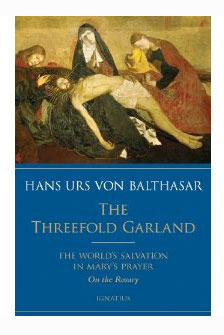
But how has this "Way" reached us? How has the "Light" penetrated to us? How has the "Word" lived among us? For this had to happen if we were ever to set out for God along a road practicable by men. Otherwise the Light would have only shone into the darkness and the darkness would not have grasped it. The Light would have come into its domains—for the world belongs to God—but its subjects would not have welcomed it. Someone had to receive the Word, so unconditionally that it staked out a space in a human being in order there itself to become man, as the Child of a Mother.
We ourselves are not this Mother, who opens herself up and offers herself to God without holding anything back: none of us speaks to God the unconditional Yes. This is why the perfect assent always precedes us unsurpassably. And yet, if God's Word is really to reach us, it is indispensable that it become the Way which we humans can tread. It could not have become man in a heart only half-open to God, for the child is essentially dependent on its mother. It is nourished from her corporeal-spiritual substance; it is reared by her to genuine and fruitful humanness. The Mother's precedence ahead of us—essential for the establishing of the road between God and us—does not imply her isolation, but rather the opening up of the possibility of us too becoming assenters, the possibility of the Word reaching us, too, and of us reaching God in the Word. "Blessed is the womb that bore You and the breasts that nursed You. Yes, truly blessed are they who hear God's Word and keep it" (Lk 11:27f). "Whoever does the will of my heavenly Father is to me a brother, a sister and a mother" (Mk 3:35).
Mary's abiding pre-cession is the basis of our own suc-cession. The community which binds God to man in her when he becomes a Child of man is the foundation of a community which binds us all together as children of God, a community which we call God's Church. The mother is the enduring presupposition, the source, the full realization of the Church, to which we can belong, if we only will it, as people under way to the perfect assent that sinks deep roots into our whole existence. Thus, we the half-finished can and must say "Hail, Mary!" to her who is whole, to her who introduces us and rears us to her wholeness. But it is not by separating her from the Son that we do this; for she is but the Answer while he is the Word.
The happening that occurs between the Son and the Mother is the center of the event of salvation, which can never lose its relevance because God's gracious self-revelation is always occurring at the present moment: the river can never become distanced from its source. If a person wants to participate in it he must plunge into this wellspring, into its inexhaustible mystery: that God's Word has really opened itself to us, that it has really been received among us and has really dwelt among us, that it has not returned to God alone but together with us. We can see what this means from the relationship between this Child and this Mother. She totally puts herself at the Word's disposition that it may become flesh from her—flesh from her flesh. But as this Child grows up and gives his divine flesh for the reconciliation of the world with God, as he offers it as a eucharistic nourishment to all who receive the Word in faith, he draws into his own flesh those who welcome him, first of all his Mother, archetype and source of the Church. Both of them, Christ and Mary-the-Church, are thus "one flesh," one "body" by virtue of a reciprocal event: first, Christ is the receiver of Mary's earthly flesh; then Mary-the-Church becomes a partaker of his heavenly flesh. Insofar as only the Mother puts her flesh at the disposal of the Word's incarnation, she is "blessed among women"; but this is but the first movement leading to the second, whereby "blessed is the fruit of her womb, Jesus," who has elicited his answer from the earthly flesh, the answer of Mary-the-Church, and steadily continues to elicit it in the Eucharist. And he elicits it from us, too, the members of the body, who according to the purity and fullness of our assent can also become her fruitful members, her very womb.
Thus we, too, on mandate from God, may greet Mary together with the Angel, and, with Elizabeth, continually call her blessed since "God is with her"; in this manner we will be praying our way into her answer to the divine Word, into her word of assent, which is now no longer directed at her but which, together with her, is directed at God. "Hail, Mary!" is a training and an integration into the prayer of Mary-the-Church. The official liturgical prayer of the Church, too—whether openly or hiddenly, consciously or unconsciously—is always Marian prayer. Nevertheless, here below we will never attain to Mary's perfection; as a constitutive condition for the way which is Christ, she is not only exemplary but archetypal, and for this reason we may constantly beg for her intercession—"now and at the hour of our death," that is, at every moment of our life, during the whole of which we remain strivers, such as have never quite attained their goal, and also at that hour when we are definitively and forcibly pushed onto our way to God, in that bitter and blessed transition when, for better or for worse, "as if through fire," we will have to learn the perfect word of assent. It is toward this hour that we live; as believers it is for this hour that we are training; and if it was only through prayer that Mary trained to utter her own word of assent, then we are truly unable to accomplish our assent by our own power: we must remain in an attitude of grateful attention looking to her who has truly been able to assent. This is why it makes sense if, at the end of the greeting —"now and at the hour of our death, Amen"—we always begin again at once with "Hail, Mary!"
By praising Mary in this circular fashion we are doing three things: we recognize the precedence of her accomplishment; we let her show us the way of the Church's assent to God; and, at the same time, we walk along this way, which is her way only because upon it she is treading the path of her Son. And this way itself is forever circular: "I have gone forth from the Father and have come into the world. Now I will again leave the world and return to the Father" (Jn 16:28); the Son does this only once and yet time and again, since along this circular path he takes with him Mary and the Church and ourselves. If the world had been nothing but un-Marian darkness, if he had returned to the Father without the world, then he would not have fulfilled his task. But all of this happened for the sake of man, "so that they too may be where I am and that they may see my glory, which You, just Father, have given to me" (Jn 17:24f).
The Threefold Garland: The World's Salvation in Mary's Prayer
by Fr. Hans Urs von Balthasar
The renowned Swiss theologian [Ignatius Insight Author Page] offers in this little book very beautiful and practical reflections for praying and living the 15  mysteries of the Rosary. He makes the profound truths and events of our salvation take on a freshness and splendor by allowing the reader to enter his own contemplation of the mysteries. Von Balthasar's theology is a theology that does not read like theology, but one that derives from prayer and leads back to prayer.
mysteries of the Rosary. He makes the profound truths and events of our salvation take on a freshness and splendor by allowing the reader to enter his own contemplation of the mysteries. Von Balthasar's theology is a theology that does not read like theology, but one that derives from prayer and leads back to prayer.
Contemplating each of the Joyful, Sorrowful and Glorious mysteries, with his focus on Jesus' giving himself for us - and Mary's part in it - Von Blathasar leads the reader to see that "Christian prayer can attain to God only along the path God himself has trod" - a God who not only addresses his Word to us, but makes it live among us.
Von Balthasar says his meditations are designed to "free the prayer of the Rosary from a certain narrowness, alien to Mary's own spirit and easily leading to monotony, and to nourish it . . . with the fullness of God's saving thoughts and saving deeds for the world."
"Von Balthasar's meditations can make the Rosary a living experience."
- Spiritual Book News
"For anyone looking for Rosary meditations, this book would be a first-rate choice."
- Spirituality Today
"No other book on the Rosary has such profound depth. It is a bouquet fragrant with the scent of a truly spiritual life. Its freshness will inspire you."
-New Covenant
October 6, 2011
St. Thérèse's Teacher: Our Lady of the Little Way

St. Thérèse's Teacher: Our Lady of the Little Way | Fr. John Saward | Homiletic & Pastoral Review | October 2011
St. Thérèse believed that the Blessed Mother was the living embodiment of "The Little Way."
In July 1937, forty years after St. Thérèse's death, Cardinal Eugenio Pacelli, later Pope Pius XII, came to Lisieux to give a first blessing to the basilica then being constructed in honour of the Little Flower. He had a meeting in the Carmel with Thérèse's sister, Céline, in religion, Sr. Geneviève of the Holy Face. The Prioress gave her permission to take Pacelli's photograph as he posed under an archway in the cloister. Afterwards, the Cardinal and the Carmelite had a private conversation. Sr. Geneviève kissed his hand, and then astonished him by saying: "Your Eminence, you're going to be Pope after Pius XI. I'm sure of it. I'm praying for it." Unsmiling, the Cardinal replied: "I'd much rather you prayed for me to have the grace of a happy death. That's far more precious to me. May the good God be merciful and kind to me at that supreme moment."
It was a wonderful reply: Eugenio Pacelli knew that no one gets to Heaven by an automatic process, and being a Cardinal, far from being a help, might well prove to be a hindrance. The Church teaches us, the saints never cease to remind us, that we must pray every day for the great gift of perseverance to the end, for the grace of a holy death. Céline, Sr. Geneviève, immediately responded with words that must have impressed and consoled the Cardinal: "If you follow the little way of spiritual childhood of our little St Thérèse, there is room only for confidence. She said there would be no judgement for children, and that you can remain a child even if you hold the highest of offices."
We shall never know in this life what St. Thérèse, through Sr. Geneviève, did for the soul of Pope Pius XII; it may be that she helped him to grow in his trust in the merciful love of Christ, and, thereby, in that sanctity which was so evident to all the faithful when our Lord did at last grant him the grace of a happy death. Such is the mystery of the Communion of Saints: we are so intertwined as members, one of another under Christ our Lord as Head, that we can communicate his grace to one another. The saints help us to be saints. While they live, they encourage us by their example, and after death, they help us by their prayers in Heaven, even by their sacred relics on earth. For as the Church teaches us, their bodies were the members of Christ and the temple of the Holy Spirit, and will be raised by Christ unto glory, and serve him now as instruments by which he pours out graces of healing and conversion.
Who among the saints most helped St. Thérèse to learn, and to live, the doctrine of the Little Way? First, as she tells us so often in the story of her soul, her first instructors were those saints whom God's Providence gave her as parents, Blessed Louis and Zélie Martin, and then, of course, she drew upon the wisdom of the saints of her own religious family, St. Teresa of Jesus and St. John of the Cross. But St. Thérèse's first teacher, under God, was of course his Blessed Mother, the Mediatrix of All Graces and the Queen of Carmel. As the Little Flower explains in her last and greatest poem, Pourquoi je t'aime, ô Marie, "Why I love you, Mary," the Blessed Virgin is the living embodiment of the doctrine her divine Son gave St. Thérèse to teach. The Little Way is Our Lady's way.
20% off New Books and Films from Ignatius Press
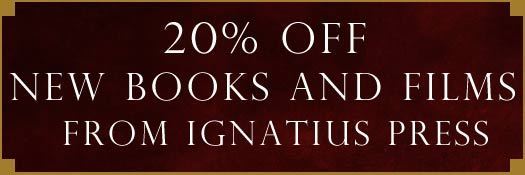
20% off New Books and Films from Ignatius Press
Offer ends Tuesday, October 11th, 2011 at 12:00 midnight EST. These prices are available online only through Ignatius.com
New books and films are available now! Ida Elisabeth, a new novel by Nobel Prize winner Sigrid Undset, is a compelling drama about fidelity, sorrow and forgiveness. The timeless spiritual classic, Abandonment to Divine Providence, is a rare treasure of inspiration. And for the younger readers, the story of the first Christian Queen of France, Saint Clothilde, makes for an exciting read. Get any of these great new releases, with more listed below, at 20% off!
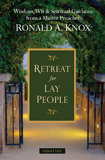 A Retreat for Lay People
A Retreat for Lay People
Spiritual Guidance for Christian Living
Fr. Ronald Knox
C. S. Lewis called him "the wittiest man in Europe," and Ronald Knox was a deft apologist, an astute translator of the Bible, and the preacher for occasions great and small throughout the first half of the twentieth century in England. But he was first and last a priest, and it is in his sermons and retreat conferences that we meet Ronald Knox the spiritual guide. A Retreat for Lay People brings together a collection of his conferences preached over a period of fifteen years.
Also available as an e-book.
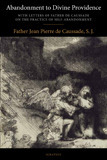 Abandonment to Divine Providence
Abandonment to Divine Providence
With Letters of Father de Caussade on the Practice of Self-Abandonment
Jean-Pierre de Caussade, S.J.
God is to be found in the simplest of our daily activities and especially through total surrender to whatever is His will for each of us. That is the message of this 18th-century inspirational classic by Jean-Pierre de Caussade. Its encouragement to "live in the present moment," accepting everyday obstacles with faith, humility and love, has guided generations of believers to holiness and spiritual peace. This special volume of the famous spiritual treatise also includes the many insightful letters of Father de Caussade on the practice of self-abandonment. These numerous letters provide a great additional source of wisdom and practical guidance for how to grow in abandonment and to deepen our union with God in our daily lives.
Also available as an e-book.
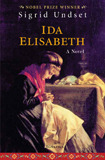 Ida Elisabeth
Ida Elisabeth
A Novel
Sigrid Undset
With its setting in modern times, Ida Elisabeth examines the difficulties inherent in male-female relationships as they are experienced in contemporary society. Undset's descriptions of the Norwegian people and countryside coupled with her profound understanding of the human heart won her worldwide literary acclaim. Both are powerfully displayed in this moving story about fidelity and mercy.
Also available as an e-book.
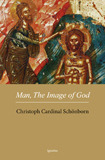 Man, The Image of God
Man, The Image of God
The Creation of Man as Good News
Christoph Cardinal Schoenborn
God created man in his own image, and the profound implications of this assertion are the subject of this book. Drawing on philosophy, theology, science, Scripture and art, Cardinal Schönborn reflects on man as the greatest of God's creatures and on the Christian understanding of his incomparable dignity that flows from this truth.
Also available as an e-book.
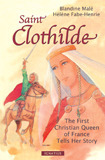 Saint Clothilde
Saint Clothilde
The First Christian Queen Of France Tells Her Story
Blandine Male, Helene Fabe-Henriet
Thanks to the prayers and good example of his young wife, Clothilde, the fierce barbarian Clovis experienced a miraculous conversion on the field of battle and became a Christian in 496, forever changing the destiny of France. In this book for young people, Queen Clothilde tells the exciting story of her life from her point of view. Though it reads like a diary, all of the historical facts have been thoroughly researched and verified by reliable sources.
DVDs
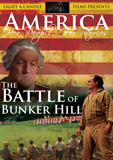 America: Her People, Her Stories
America: Her People, Her Stories
The Battle of Bunker Hill
In this epic and educational docudrama, Producer/Director Tony Malanowski brings The Battle of Bunker Hill to life and launches the groundbreaking series, America: Her People, Her Stories, with an impressive production highlighting the brave spirit of America's pioneers. Join the courageous defenders as you and your family take part in the first major conflict of the American Revolution, The Battle of Bunker Hill.
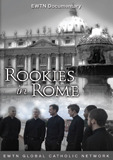 Rookies in Rome
Rookies in Rome
What does it mean to study at the famous Pontifical North American College in Rome? Get the perspectives of six men who are beginning their first year at the college in the EWTN Original Documentary, Rookies in Rome. Upperclassmen call the rookies the "New Men," but to the lay faithful they are known as the future of the Catholic Church in America. Join Host Bob Dolan as he gives us an unprecedented look inside their life at the NAC.
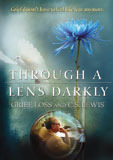 Through a Lens Darkly
Through a Lens Darkly
Grief, Loss and C.S. Lewis
Loss comes in many forms: The grief over the death of a loved one, the devastation of a physical or mental impairment, the pain of divorce or separation, or the distress of job loss and foreclosure. The physical and emotional responses to grief can be as heart wrenching as the loss itself. So where does a person turn for answers and encouragement in a time of despair, doubt or fear? This new film is a literary review documentary that will uplift the soul with moving stories of individuals and families touched by significant loss who have begun their journey to recovery, and who share their thoughts on the timeless wisdom of C.S. Lewis's most personal and reflective book, A Grief Observed.
For Additional Sale Items Click HERE!
"Separation of church and state" or "Subjection of church to state"?
From the Wall Street Journal, news that The Supreme Court may soon be ruling whether or not the federal government's Justice Department can decide which church employees are clergy and which aren't:
But who counts as a minister? Cheryl Perich's duties included leading students in prayer and worship, but she also taught secular subjects, using ordinary secular textbooks. The sole disagreement in the lower courts was whether her job was sufficiently religious to be considered ministerial. The Supreme Court will consider, for the first time, how to make that determination.
But the Obama Justice Department has now asked the court to disavow the ministerial exception altogether. This would mean that, in every future case, a court—and not the church—would decide whether the church's reasons for firing or not hiring a minister were good enough.
But the government, including the judiciary, is not entitled under the First Amendment to decide what qualifications a minister should have, or to weigh religious considerations against others. Is a secular court to decide, for example, whether confining Catholic priests or Orthodox rabbis to males is a correct interpretation of scripture, or merely a vestige of outmoded and stereotypical bias?
James Madison famously declared that the civil magistrate is not a "competent Judge of Religious truth." Yet every discrimination claim about the hiring of a minister necessarily comes down to the question of whether the church had a bona fide religious reason for its decision. That places the courts squarely in the business of adjudicating the validity of a church's claims about its own religious practice.
Read the entire piece, "Washington Wants a Say Over Your Minister" (WSJ, Oct. 5, 2011), by Michael W. McConnell.
Carl E. Olson's Blog
- Carl E. Olson's profile
- 20 followers




